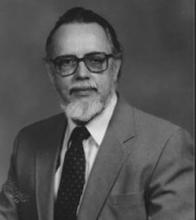Can a bad person be a good theologian?
All of us fall short of our ideals, of course. But there is a common-sense expectation that religious professionals should try to behave as they counsel others to behave. They may not be perfect, but they should not be louts or jerks.
By that standard, few have failed as egregiously as John Howard Yoder, America’s most influential pacifist theologian. In his teaching at Notre Dame and elsewhere, and in books like “The Politics of Jesus,” published in 1972, Mr. Yoder, a Mennonite Christian, helped thousands formulate their opposition to violence. Yet, as he admitted before his death in 1997, he groped many women or pressured them to have physical contact, although never sexual intercourse.
Mr. Yoder’s scholarly pre-eminence keeps growing, and with it the ambivalence that Mennonites and other Christians feel toward him. In August, Ervin Stutzman, executive director of Mennonite Church USA, which has about 100,000 members, announced the formation of a “discernment group” to guide a process to “contribute to healing for victims” of Mr. Yoder’s abuse.
Read more at http://nyti.ms/194GmqV
--Oct. 15, 2013




Comments
A Tree of Love
They built a cross with hate and despair
And hung an innocent body there.
In their anger it did grow, bearing fruit they didn’t know
They watered it with their fears
Night and morning with fresh tears
They sunned it with their evil smiles
And their soft deceitful wiles.
The cross it grew both day and night
Till it bore fruit to their delight
And the wicked did begin to dine
All declared it was just like wine
Its fruit they all wanted more
And scratched around on the floor
It acted upon them like a drug
The name of the fruit they called
it Love.
Peter Baxter inspired by William Blake
Add new comment
Canadian Mennonite invites comments and encourages constructive discussion about our content. Actual full names (first and last) are required. Comments are moderated and may be edited. They will not appear online until approved and will be posted during business hours. Some comments may be reproduced in print.